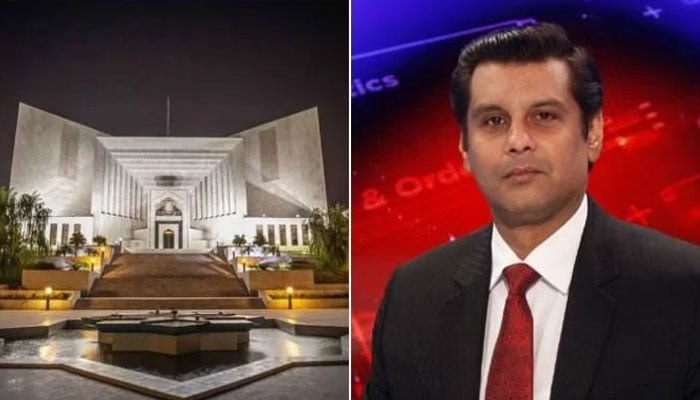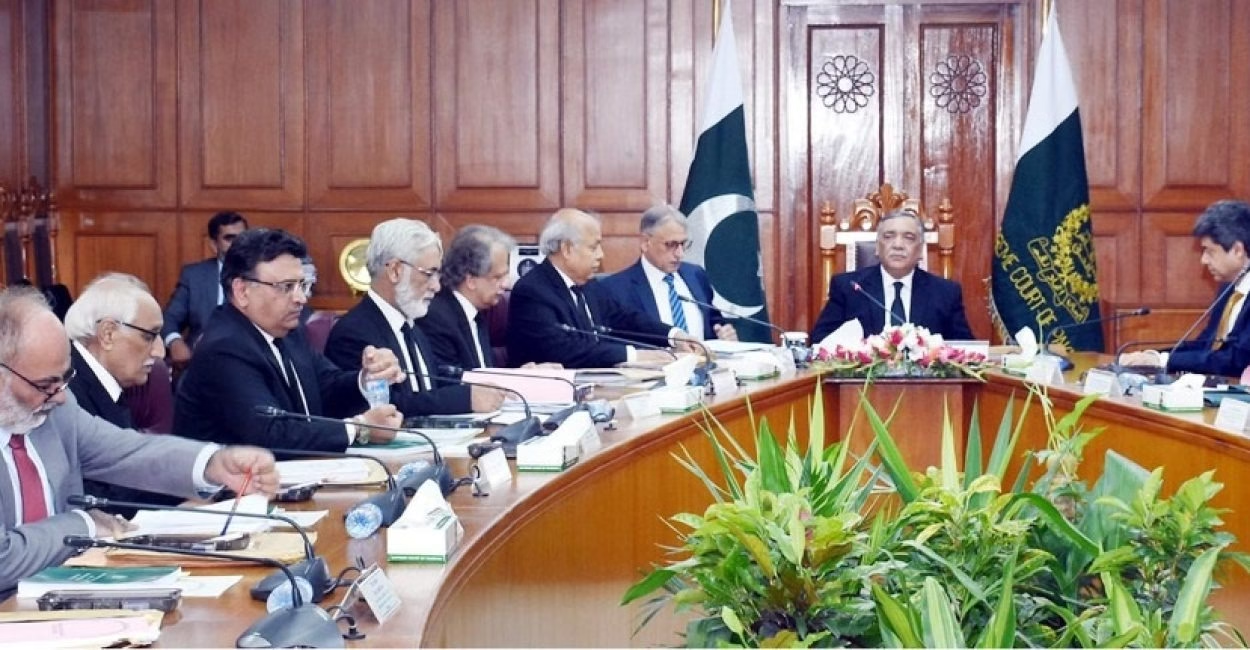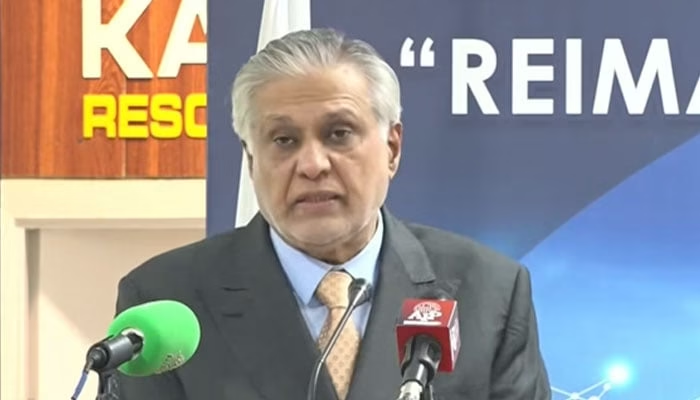In a significant development, the Supreme Court of Pakistan has scheduled a suo motu hearing on the murder of prominent journalist Arshad Sharif. A seven-member constitutional bench, led by Justice Aminuddin, will preside over the case on December 9, marking a critical step in the quest for justice in one of the most high-profile murder cases in recent memory.
The Bench of Justice: Key Members
The hearing will be conducted by a specially constituted seven-member bench comprising some of the country’s most senior judges. The members of the bench include:
- Justice Jamal Mandokhel
- Justice Muhammad Ali Mazhar
- Justice Hassan Rizvi
- Justice Musarat Hilali
- Justice Naeem Afghan
- Justice Shahid Bilal
This powerful assembly of judicial expertise reflects the gravity of the case and the Supreme Court’s commitment to uncovering the truth behind the tragic killing of Arshad Sharif.
A Tragic Incident That Shook the Nation
The case dates back to October 23, 2022, when Arshad Sharif, a respected journalist known for his investigative reporting, was fatally shot on the Magadi Highway in Nairobi, Kenya. The Kenyan police initially claimed that the killing was a case of mistaken identity. However, further investigation into the incident revealed glaring contradictions in the Kenyan police’s narrative, raising serious questions about the motives and circumstances surrounding Sharif’s murder.
Arshad Sharif’s death sent shockwaves across Pakistan, sparking outrage among the public and the media community. Calls for a thorough investigation into the case gained momentum, with demands for accountability from both domestic and international quarters.
Supreme Court Takes Suo Motu Notice
Recognizing the importance of the case and the need for impartial judicial oversight, the Supreme Court of Pakistan took suo motu notice of the matter. This proactive step underscores the judiciary’s role in addressing cases of public significance and ensuring justice for the aggrieved.
The suo motu notice highlights the unresolved questions and discrepancies in the Kenyan police’s account, signaling the need for a comprehensive investigation to uncover the truth.
Contradictions in the Kenyan Police’s Narrative
The Kenyan police initially maintained that Arshad Sharif’s death was the result of mistaken identity during a roadblock operation. However, subsequent investigations revealed inconsistencies in their statements, casting doubt on the credibility of their explanation.
Reports suggested potential foul play, leading to calls for an independent inquiry into the murder. The contradictions in the Kenyan police’s position have fueled suspicions of a targeted killing, prompting Pakistani authorities to demand further clarification and accountability.
The Quest for Justice
The Supreme Court’s decision to convene a constitutional bench for the suo motu hearing underscores the case’s significance. Justice Aminuddin and his team will not only examine the circumstances of Arshad Sharif’s murder but also address the broader implications for press freedom and the safety of journalists in Pakistan and beyond.
This hearing is expected to focus on:
- The inconsistencies in the Kenyan police’s account.
- Efforts made by Pakistani authorities to investigate the case.
- Possible involvement of external actors in the murder.
- Steps needed to ensure the safety of journalists and prevent similar tragedies in the future.
Impact on Press Freedom
Arshad Sharif’s murder has become a symbol of the dangers faced by journalists who strive to uncover the truth. His tragic death has reignited debates about press freedom, safety, and the challenges faced by investigative journalists worldwide.
The case has also put a spotlight on the need for international cooperation in addressing crimes against journalists, particularly in cases where foreign jurisdictions are involved.
Public and Media Reaction
The announcement of the Supreme Court hearing has been met with widespread approval from the media community and the general public. Many see it as a step towards ensuring justice for Arshad Sharif and holding those responsible accountable.
Media organizations have expressed hope that the hearing will lead to significant revelations about the circumstances of the murder and pave the way for stronger protections for journalists in the future.
Looking Ahead
As the Supreme Court prepares to hear the case, all eyes are on the proceedings scheduled for December 9. The hearing represents an opportunity for Pakistan to reaffirm its commitment to justice, accountability, and press freedom.
The outcome of the hearing could set a precedent for how cases involving the safety of journalists and international cooperation are handled in the future. For Arshad Sharif’s family, colleagues, and supporters, the hearing is a crucial step in their long and painful journey for justice.
The Supreme Court’s suo motu hearing on Arshad Sharif’s murder is a pivotal moment in the pursuit of justice for one of Pakistan’s most respected journalists. With a powerful constitutional bench at the helm, the nation hopes for a transparent and thorough investigation that will not only provide answers but also ensure that such tragedies are never repeated. The quest for truth and accountability continues as the world watches closely.



